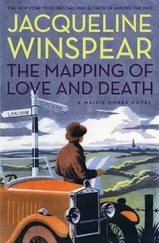Is it a fate to have been happy?
Here is another definition of a life I have not lived. At a night club upstate that wedding weekend, an oldish and overweight, gray-haired woman with an obvious paunch and a white violin and a back-up band sang and fiddled a song that she had written. She sang and chanted that she could get everyone to dance: “I’ll make you wild.…” She sang and chanted it. She had set her amplifiers at some high register and everything she did was loudly amplified, a bit thunderous and a bit shrill with electronic treble, electronic tremble. She was loud, hypnotic, gifted, and her insistence was inspired in its way, that she could make us wild.… Dionysiac. And people did begin to dance. The woman became more and more suggestive, dirty, and commanding, in a somehow Scotch-Irish way that was gypsylike and irresistible. It was also part of the American backwoods, the camp meetings, the harvest festivals.
Everyone in the audience, in the crowd, who was not crippled or arthritic—the drunken midlifers and the eighty-year-olds and the stoned younger ones, countryside working class—danced stiffly wildly. We were whitely and self-consciously orgiastic. In a somewhat consciously traditional way and as rebels as well. The sexual self-revelations, such as they were, suited the room and the lake. And explained the privacy of clubs and summer places. Explained my parents’ summertime snobbery, explained night clubs and lakeside resorts in a new and somewhat comic way, a touching way, with a sense of kinship. All the things I have not lived were present. I never was Dionysian.
Bad news, broken heart, absurd tension. Still, the light among the trees and the fragments of sky, pale, glowing blue like the nylon over my head with the light in it, say it will be a pretty day. Je m’en foutisme —I-don’t-give-a-damn-ism: is that the note I whistle? From the time I was old enough and strong enough to have my own way at least partly, even as a boy, I have insisted on living part of each day, a moment or two, without suffering. And without cold willfulness. A civilized moment or two of freedom and of emotion.
I bought this land last year, five acres; four are wooded and steep and set among gray, lichenous rocks and closed in by a forty-foot rock face and a lower, sloping meadow—small, less than an acre, and ringed with hemlocks—and in the woods between the meadow and these rocks a small, green, wooden, three-room house with three porches and a steep, wood-shingled roof and summer-camp shutters.
I would like to do a tree census—find out how many trees I own, how many branches, how many twigs and leaves. And bugs. A quarter of a million leaves. A million leaves … I am a millionaire of rustling leaves … of grass blades. Of molecules of air … I own the air I breathe at this minute. Cubic yards of air, invisible stones of a luminous temple.
What are the statistics? Seventy-five maples, eighty beeches, seventeen oaks, seven junior oaks, seven hemlocks including one, uh, picturesque giant. And so on. But I am inventing that. Sitting now on a log, drinking coffee, having a death-time cigarette, sitting on my red-and-blue air mattress, I look around at the uneven ground and nearby cliff, the trees that grew against the rock and that are fastened to the rock, leafy pilasters. The scattered and decaying leaves on the ground. The trees I own are not quite singular for me; they are trees , a generalized mass: my trees. Do you suppose God is this way about souls? I haven’t named any of my trees. In the morning light, I look around— the leaner, the life-is-a-beech, the straight-up maple near the boundary line to the east, the birch society, a crooked copse .… Those aren’t names of long-term affection. The feelings I have toward them are half-baked, inchoate, are unlike any feeling I have had toward animals or people or things … the patient, fluttering trees … A wind is springing up, stirs my semi-named, half-nameless trees.… A blur of vegetation, branches thickened to the eye by their motion, the cinder roses of shadow move on the ground.… The terms come from a Spanish poem: the smear of vegetation … cinder roses.… Thought stops. The great invisible chain links of mountain wind lash at my woods. I listen with abrupt, incredible simplicity to the sound of that wind, the forceful and shifting exercise of the morning wind. All around me spread shivering whorls of tethered shadows, an infinity of motions of a million twigs. The world is active and stirs eccentrically and rustlingly, stirs differently in the blond, sunlit upper air and in the more constrained greenish lower air. Nature has said, I will make the tethered trees wild.
Dionysiac release? I suppose so. A rehearsal for the release of seeds. An invisible embrace. The motion of the mountainside.
Clouds, too, are a smear, they move so rapidly in the wind. Capitalism has a spiritual side—a pagan spiritual side and a Christian one, one of self-examination and of values, of truths beyond truths. And it has a civilly spiritual side: a keep-your-house-pretty side, a wear-the-right-clothes side. The responsibility for the condition of the immediate world is clearly placed, whether the community uses its knowledge of such identifiable responsibility with intelligence or not. These trees will outlive me unless I become thoroughly a capitalist or a destructive dying man, rampantly assertive, and have them lumbered.
I control the fate of the trees rustling in a morning wind, in the shudder of the air. The cinder roses of the skidding and fluttering and whirling shadows are sometimes like the splashed gray letters of a restless alphabet slipping over rocks and dead branches on the ground, over wild grass in the meadow, grass stained reddish here and there by reddish seed heads, with yellow and white wildflowers visible among the grasses. A dry stream, over moss, sedum, tansy, goutweed, bluets, wild mustard, and wild phlox, rockets in openings among the trees. Shadows and leaves in their vegetable and aerial life move over me in a profound sweetening of the moment.
My life is a mess; yet I am fairly happy. Perhaps unfairly. I can’t say I understand happiness. In my case it always has an uncaring, what-the-hell element and is a form of dizzied satisfaction that is unfeeling at its center, freed from feeling, almost a cry of enough. The sense of completion is like a satisfaction with its spine of shameful triumph … of peace and escape. It is shallow of me and in my blood—an old traditional thing—and it is the deepest and most savage emotion I ever have, it is the deepest part of me, to be happy. It is based on my ignoring an important number of things, but I have a rebellious nature of this sort. In a pagan sense it is a serious business to be happy.
This is absurd, this sequence of thoughts. How far would I go morally, toward death, how far did I go, to own my so far unnamed, not deeply known trees? If I want money now, I have to think harder about how to negotiate, how to handle cleverly the situations that will establish the amount of money I will have while I die. I have to figure out how to put the fear of God into the pimp-Jones and the rat-Moore.
I will probably do what is necessary—what part of my soul do I want to save at this point? What do I care about? When I was a child, no one told me what life was actually like.… I wish I had been told. Now I am waiting while the wind mumbles and stammers, twitches, as if it were alive and standing still, an immense, transparent ruminant-acrobat, a glass creature resting from its stampede of a moment ago. I wait for it to return, the large, invisible, active, somersaulting mountain wind among the trees in my wood. The brief, embracing wind.
Death? Ugliness? Who gives a goddamn fuck? Who gives a good goddamn fuck? Here it comes, the first transparent steps—and leaps—of the wind among the trees.
Читать дальше












